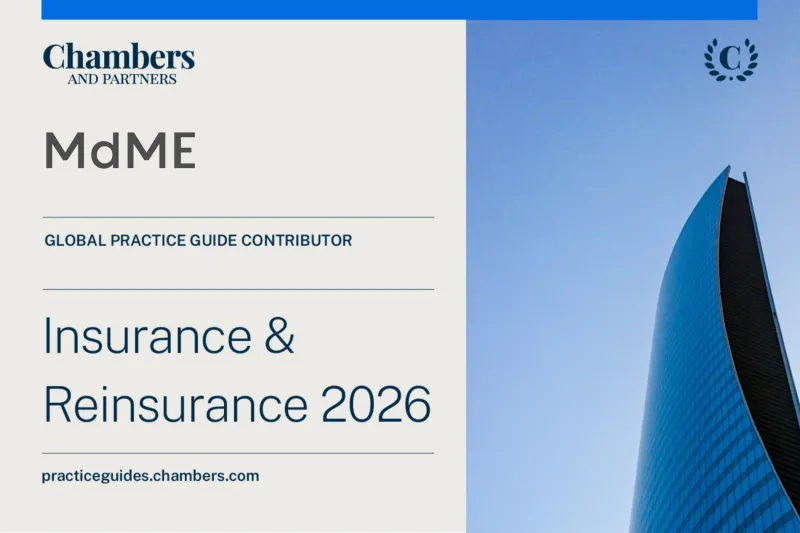Taxation | Doing Business in Macau 2025
This article is an extract from the MdME Guide to Doing Business in Macau 2025. Click here for the full guide.
Macau’s strategic diversification development, coupled with a favourable tax regime, attracts both international and local investors. This chapter aims to provide a comprehensive overview of the various tax implications for investors in Macau, covering direct and indirect taxes, withholding taxation, and other pertinent topics.

1. Recent trends
On December 16, 2024, Macau’s Legislative Assembly approved the new Código Tributário (“Tax Code”) and other amendments to tax laws.
Save as to few exceptions, the new Tax Code and the amendments to substantive tax laws are set to take effect on January 1, 2026. Such amendments will shift Macau’s profits tax from a worldwide income tax to a source tax (with limited exceptions) and introduces international norms like transfer pricing, international double taxation avoidance mechanisms, tax residency, and permanent establishment to modernise and align Macau Tax System with global standards.
2. Professional Income Tax
Individual residents and non-residents are taxed on their employment and self-employment income sourced in Macau at progressive rates:
| INCOME (MOP) | TAX RATE |
|
Up to MOP 144,00 |
Exempt |
| From MOP 144,00 to MOP 164,00 | 7% |
| Above MOP 164,00 | 12% |
Employers withhold the tax from employees’ salaries and remit it to the government. Self-employed professionals must declare and pay tax directly.
3. Industrial Contribution
It is levied on all natural or legal persons who carry out any activity of a commercial or industrial nature. It takes the form of an annual fixed fee that varies according to the activity of each establishment. This tax is paid for each of the activities carried out, so the annual amount
payable is an accumulated value of the various activities.
Nonetheless, it has been exempted on an annual basis by the Macau government for more than 20 years.
4. Complementary Income Tax
Businesses operating in Macau are subject to Complementary Income Tax or “Profits Tax”, which applies to profits from commercial and industrial activities with the following key points:
Tax Residence: companies are considered tax residents in Macau if they are incorporated there or have their management and control exercised in Macau.
a. Tax Rates: (i) progressive tax rates (but currently exempt on profits up to MOP 600,000 due to annual tax incentives); (ii) 12% on profits exceeding MOP 600,000.
b. Taxpayer Classification: (i) Group A (tax based on actual profits determined by financial statements) includes companies with registered capital of at least MOP 1 million, or annual taxable profits exceeding MOP 1 million; and (ii) Group B (tax is based on assumed profits, determined by the government’s Fixation Committee) includes smaller businesses and individuals not meeting Group A criteria.
c. Tax losses: only Group A taxpayers can carry forward losses for a three-year period. It is not possible to carry back losses.
d. Taxation system: currently, taxation applies to all income, including income sourced outside Macau. From 2026, both resident and non- resident companies will be taxed only on Macau-sourced income, save as to certain passive income, namely dividends, royalties, capital gains and interests, which is also taxed in Macau even if sourced abroad, but subject to a double taxation mechanism (tax credit).
5. Permanent Establishment
A Permanent Establishment (“PE”) generally refers to a fixed place of business through which a commercial or industrial activity is carried out, such as a place of management, a branch, an office, a factory, a workshop, a mine, an oil or gas well, a quarry or any other place where natural resources are extracted, as well as installations set up by entities organising exhibitions, conventions, conferences and commercial or industrial fairs, in Macau1.
6. Other taxes
6.1. Value-added tax (“VAT”)
Currently, there is no VAT regime in Macau.
6.2 Stamp Duty
Stamp duty is levied on certain legal documents, transactions, and contracts as well as on the transfer of real estate assets. The rates and rules can differ based on the nature of the document/transaction, as per the examples referred below
| TYPE OF TRANSACTION | STAMP DUTY RATE |
| Real Estate Property Transfer with consideration |
progressive rates by brackets based on property value or consideration value whichever the highest: |
| Gift of Real estate Property | 5% based on property value |
| Agreements for the Grant of Use of Spaces in Shopping Centres | 0.5% of total amounts payable during the contract term |
| Lease Agreements | 0.5% of total rent for the lease period |
6.3. Tourism Tax
Under the tourism tax a 5% tax rate is levied on bills of services, excluding telecommunication and laundry services, on services provided by restaurants, bars, hotels, guest houses, dancing halls, night clubs, massage/sauna parlours, gymnasiums, karaoke, and the like. It is generally passed on to consumers.
6.4. Consumption tax (excise duty)
Consumption tax in Macau is a specific tax imposed on tobacco and spirits. Please see below the applicable tax rates:
| PRODUCT | ITEM | TAX |
| ALCOHOLIC BEVERAGES |
Drinks with an
|
20MOP/litre + |
|
Cigars and cigarillos |
4,326 MOP/Kg |
|
|
Cigarettes containing |
1.5MOP/unit |
|
| TOBACCO |
Other manufactured tobacco and manufactured tobacco |
600,00/Kg |
6.5. Motor vehicle tax
Motor vehicle tax is applied to the sale of new motor vehicles to consumers and the importation of new vehicles for personal use. Certain individuals, organizations, and specific uses may qualify for exemptions. Taxation applies over the tax value of the vehicles which is determined by a Valuation Committee. Lists with the tax value of vehicles sold in Macau are registered with the MFB. The tax rates are progressive by brackets and vary depending on the vehicle type and its value.
6.6. Road tax
Annual tax based on engine size (motorcycles/cars) or gross weight (trucks/machines).
6.7. Customs duties/import tariffs
Apart from consumption tax imposed on tobacco and spirits entering Macau, there are no customs duties/import tariffs in Macau.
6.8. Special gaming tax
Special gaming tax is levied at 35% on the gross gaming revenue obtained by gaming concessionaires.
7. Withholding taxation
Macau does not levy withholding tax.
8. Taxation of real estate income & capital gains
Please refer to Tax Issues addressed in the chapter of Real Estate. There are no specific provisions for taxation of capital gains, which are taxable only under the profits tax.
9. Double taxation relief and tax treaties
Currently Macau does not foresee relief for double taxation under its domestic law2 , but said relief is available under the Double Tax Treaties entered into with the following countries/territories: Mainland China, Hong Kong, Portugal, Mozambique, Vietnam, Belgium and Cape Verde. Double taxation relief measures will be introduced from 2026 onwards for profits tax.
10. Transfer pricing rules
Currently, Macau does not have formal transfer pricing regulations2.
11. Anti-avoidance rules
There are no anti-avoidance rules in domestic law. Double Tax Treaties may contain general and/or specific anti-avoidance rules.
12. Thin capitalisation rules
There are no thin capitalisation rules in Macau.
13. Tax compliance
Below is a summary table that outlines the typical tax compliance deadlines for the main taxes applicable to businesses operating in Macau:
| TAX | DEADLINE/TIMEFRAME |
| COMPLEMENTARY INCOME TAX (PROFITS TAX0 |
Annual return due by taxpayers in: (i) Group B: 31 March; and |
| PROFESSIONAL TAX |
Withholding tax payable on 15 April, 15 July, 15 October and 15 January in relation to the preceding quarter. Any adjustments should made during the month of January for the income paid in the preceding year. Independent professionals need to submit their tax statements up to 31 of March, or 15 of April for those that are required to have organized accounts |
| URBAN PROPERTY TAX | Payment due during the months of June, July and August (30 days from the date |
| STAMP DUTY | Payable at the time of the transaction |
| INDUSTRIAL CONTRIBUTION | Due alongside annual corporate tax fillings |
14. Real estate tax issues
14.1. Urban Property Tax
- The Urban Property Tax is levied annually on the ownership of properties (including residential, commercial, and industrial real estate).
- The following rates apply:
a. Non-leased properties (self-used): 6% assessed on the official ratable value as established by the appointed committee of the MFB;
b. Leased properties: 10% (8% in 2025) assessed over the actual rental income received.
There is a standard MOP 3,500 reduction in the property tax liabilities in 2025 as per the 2025 Budget. Corporate and non-Macau residents do not benefit from it.
Maintenance expenses can be deducted up to 10%.
14.2. Stamp duty on property acquisitions
Please refer to the chapter of Real Estate.
14.3. Rental income & capital gains
Rental income is taxed under Urban Property Tax, while capital gains from real estate sales are typically not taxed unless sold within two years of acquisition, in which case profits tax may be applicable.
1Under the New Tax Code, from 01/01/2026, a new definition of PE will enter into force covering the fixed place criteria and dependent agent criteria as per the OECD guidelines.
2Following Law 24/2024 Transfer Pricing rules will enter into force in Macau starting 01/01/2026. Under these rules commercial and financial transactions between taxpayers tax resident in Macau and related parties in other jurisdictions must be in accordance with the arm’s length principle.



